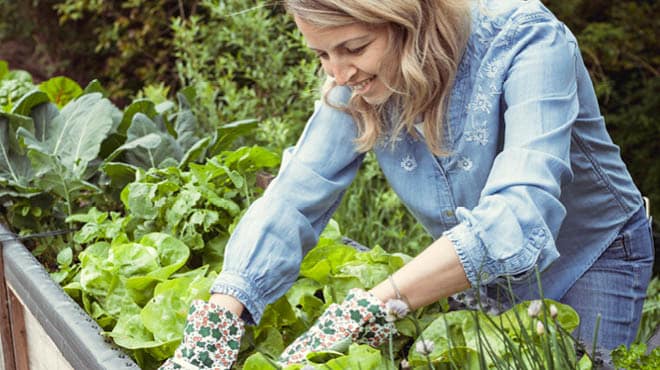Imaginative Gardening Concepts to Make Best Use Of Tiny Rooms and Returns
Imaginative Gardening Concepts to Make Best Use Of Tiny Rooms and Returns
Blog Article
Unlocking the Benefits of Gardening: A Comprehensive Take A Look At the Various Kinds and Their Effect On Wellness
Exploring the complex advantages of gardening discloses a spectrum of practices that significantly boost specific wellness. As we analyze these diverse horticulture techniques, it ends up being apparent that their impact can reverberate on individual, social, and ecological levels, motivating a more detailed look at just how these links create a cohesive story of alternative wellness.
Kinds Of Gardening

Blossom horticulture, one more popular group, stresses the aesthetic appeal of cultivated blossoms. This type can enhance landscapes and advertise biodiversity by drawing in helpful pollinators. Herb horticulture includes growing fragrant and culinary plants, adding both to cooking and natural remedies.
Container gardening deals adaptability, allowing individuals with minimal room to participate in gardening by using pots and planters. This approach is specifically prominent in metropolitan settings. Raised bed horticulture, on the other hand, includes developing elevated plots that improve soil drainage and accessibility, making it less complicated for gardeners to handle their plants.
Lastly, neighborhood horticulture promotes cooperation among people in shared areas, advertising social interaction and cumulative responsibility. Each kind of gardening offers unique objectives and deals with various preferences, making horticulture a versatile task that can be tailored to specific requirements and settings.
Mental Health And Wellness Advantages
Taking part in different kinds of gardening not only generates tangible benefits such as fresh fruit and vegetables and attractive flowers yet likewise provides significant psychological health and wellness advantages. Research study shows that horticulture can be a powerful tool for minimizing stress and anxiety, anxiety, and depression. The act of having a tendency to plants and growing a garden cultivates a feeling of purpose and achievement, which can improve total psychological health.
Additionally, gardening encourages mindfulness, as it needs people to concentrate on the present moment, whether it be planting seeds or supporting development. This mindfulness method can cause minimized rumination and boosted state of mind security. The exposure to native environments during gardening has also been linked to enhanced cognitive functioning and lowered sensations of exhaustion.
Social communication plays a crucial duty in psychological wellness, and area horticulture efforts give possibilities for people to link with others, promoting a sense of belonging. The shared experience of gardening can cultivate friendships and assistance networks, better bolstering emotional durability.
Physical Wellness Perks
Lots of people may not realize that gardening additionally supplies considerable physical health and wellness benefits. Taking part in gardening tasks requires a series of physical movements, consisting of flexing, lifting, digging, and planting, which collectively add to improved strength, versatility, and endurance. These activities can Get More Information enhance cardiovascular wellness by promoting an elevated heart rate, therefore decreasing the threat of heart problem.
Additionally, horticulture can serve as a moderate-intensity exercise, assisting people attain suggested exercise levels. Research studies show that regular involvement in horticulture can burn considerable calories-- approximately 200-400 calories per hour, relying on the intensity of the jobs done. Such calorie expense is helpful for weight management and overall metabolic health.
Additionally, exposure to sunshine throughout gardening can facilitate the synthesis of vitamin D, which plays a vital role in preserving bone health and supporting immune feature. Additionally, the act of horticulture frequently involves working with dirt, which has actually been connected to possible psychological and physical wellness advantages because of the existence of beneficial bacteria. Gardening.
Social Connections Through Horticulture
The communal aspects of gardening foster purposeful social links among individuals. Area yards, particularly, function as lively hubs where people from varied backgrounds come together, growing not only plants however also partnerships. These common areas encourage cooperation, enabling individuals to trade knowledge, abilities, and sources, therefore enhancing their gardening experience and cultivating a feeling of belonging.
Engagement in gardening activities usually brings about the formation of friendships and assistance networks. Participants often join for common goals, such as planting seasons, harvest events, or educational workshops, which enhance interpersonal ties and produce a feeling of area. Such interactions can relieve feelings of seclusion and improve mental well-being, as people locate companionship and camaraderie in common ventures.

Ecological Impact of Gardening
Gardening considerably adds to ecological sustainability in several methods. Among one of the most blog here noteworthy benefits is the enhancement of biodiversity. Home yards offer essential environments for different species, consisting of pollinators such as bees and butterflies, which are important for ecosystem wellness. By growing diverse plant species, garden enthusiasts can create a well balanced atmosphere that supports both vegetation and fauna.
Additionally, gardens play a vital function in water conservation. Tactical landscapes, including indigenous plants and xeriscaping, minimize water usage and protect against overflow, thereby protecting regional waterways from air pollution.
Final Thought

To conclude, horticulture acts as a diverse task that improves health across numerous domain names. The diverse kinds of horticulture-- including veggie, blossom, herb, container, and raised bed-- add to mental and physical health and wellness, foster social connections, and advertise ecological sustainability. By taking part in gardening methods, individuals can experience improved lifestyle while additionally sustaining neighborhood bonds and environmental health. Inevitably, the alternative advantages of gardening underscore its relevance as an important element in enhancing total well-being.
Report this page